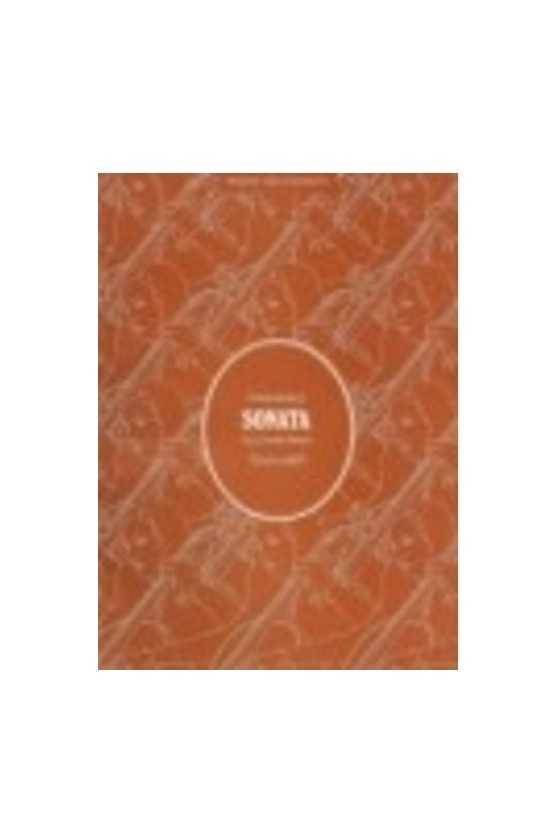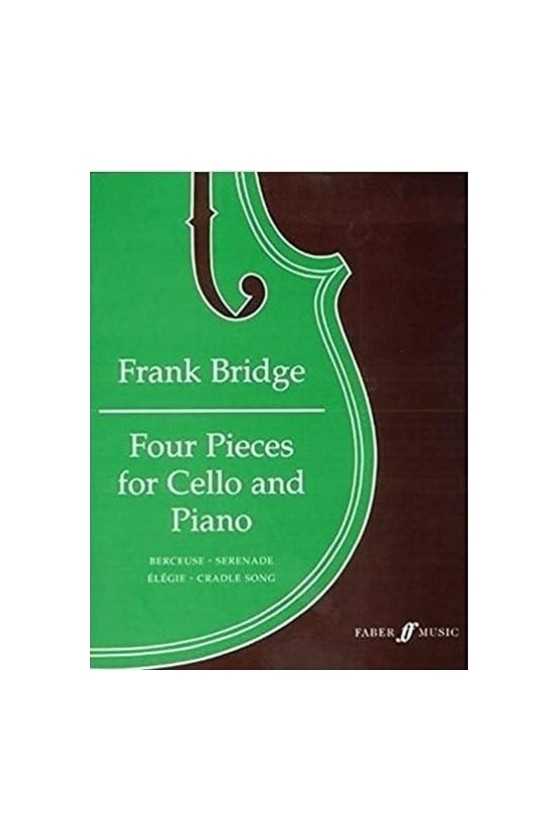-
MenuBack
-
Instruments
-
-
Strings
-
-
Violin Strings
-
Violin Strings A-G
- Alphayue Violin Strings by Thomastik-Infeld
- Amber Violin Strings by Warchal
- Ametyst Violin Strings by Warchal
- Ascente Violin Strings by D'Addario
- Aurora Violin Strings by Larsen
- Brilliant Violin Strings by Warchal
- Brilliant Vintage Violin Strings by Warchal
- Chromcor Violin Strings by Pirastro
- Dominant Violin Strings by Thomastik-Infeld
- Dominant Pro Violin Strings
- Dynamo Violin Strings by Thomastik-Infeld
- Eudoxa Violin Strings by Pirastro
- Evah Pirazzi Violin Strings by Pirastro
- Evah Pirazzi Gold Violin by Pirastro
- Goldbrokat Violin E Strings
- Corelli Violin Strings
- E Strings - Various Brands
-
Violin Strings H-O
- Helicore Violin Strings by D'Addario
- Hill Violin E String by W. E. Hill & Sons
- Infeld Blue Violin Strings
- Infeld Red Violin Strings
- Jargar Violin Strings
- Kaplan Violin Strings by D'Addario
- Karneol Violin Strings by Warchal
- Larsen Violin Strings
- Maestro Violin Strings
- Obligato Violin Strings
- Oliv Violin Strings
- Opal Titan Violin Strings
- Opal Gold Violin Strings
- Violin Strings P-Q
- Violin Strings R-Z
-
Violin Strings A-G
-
-
-
Viola Strings
-
Viola Strings A-O
- Alphayue Viola Strings
- Ascente Viola Strings
- Dominant Viola Strings
- Eudoxa Viola Strings
- Evah Pirazzi Viola Strings
- Helicore Viola Strings
- Jargar Viola Strings
- Kaplan Viola Strings
- Larsen Viola Strings
- Larsen Virtuoso Viola Strings
- Maestro Viola Strings
- Obligato Viola Strings
- Oliv Viola Strings
- Opal Green Pro Viola Strings
- Viola Strings P-Z
-
Viola Strings A-O
-
-
-
Cello Strings
- Cello Strings A-E
-
Cello Strings H-P
- Helicore Cello Strings
- Jargar Cello Strings
- Kaplan Cello Strings
- Larsen Cello Strings
- Lenzner Cello Strings
- Maestro Cello Strings
- NS Design Electric Cello Strings
- Obligato Cello Strings
- Opal Titan Cello Strings
- Passione Cello Strings
- Permanent Cello Strings
- Perpetual Cello Original Strings
- Perpetual Cello Strings
- Perpetual Soloist Cello Strings
- Piranito Cello Strings
- Precision Cello Strings by Thomastik-Infeld
- Prelude Cello Strings
- Prim Cello Strings
- Cello Strings Q-Z
-
-
-
Double Bass Strings
-
Double Bass Strings
- Belcanto Double Bass Strings
- Dominant Double Bass Strings
- Eudoxa Double Bass Strings
- Evah Pirazzi Double Bass Strings
- Helicore Double Bass Strings
- Kaplan Double Bass Strings
- Maestro Double Bass Strings
- NS Electric Double Bass Strings
- Obligato Double Bass Strings
- Perpetual Double Bass Strings by Pirastro
- Precision Double Bass Strings
- Prelude Double Bass Strings
- Spirocore Double Bass Strings
- Superflexible Bass Strings
-
Double Bass Strings
-
-
-
Bows
-
-
Cases
-
-
Accessories
-
-
Learn - All Grades
-
-
-
-
-
Beginner Methods A-N
- Abracadabra
- Adventures in Violinland
- The ABC's books
- All for Strings
- Artistry in Strings
- A Tune A Day
- Blackwell Books
- Colour Strings Books
- Edward Huws Jones
- Encore On Strings
- Essential Elements
- Flying Start for Strings
- L Fin Beginning Ensemble Series
- Katherine and Hugh Colledge
- Mary Cohen Books
- My First Pieces & My Next Pieces
- Nelson Books
- New Directions for Strings
-
-
-
-
Perform
-
-
Violin Sheet Music
-
Composers Violin A-C
- Accolay, Jean Baptiste
- Achron, Joseph Yulyevich
- Albinoni, Tomaso
- Arne, Thomas Augustine
- Bach, Johann Sebastian
- Beethoven, Ludwig van
- Bloch, Ernest
- Beriot, Charles Auguste De
- Brahms, Johannes
- Bridge, Frank
- Bruch, Max
- Carse, Adam
- Campagnoli, Bartolomeo
- Cerulli, Bob
- Chausson, Ernest
- Chopin, Frédéric François
- Copland, Aaron
- Corelli, Arcangelo
- Corigliano, John
-
Composers Violin D-G
- Dancla, Charles
- Debussy, Claude
- Delius, Frederick
- De Falla, Manuel
- Dinicu, Grigoraș Ionică
- Doflein, Elma
- Drdla, Franz
- Dvorak, Antonin
- Eccles, Henri
- Edwards, Ross
- Elgar, Edward
- Faure, Gabriel
- Finzi, Gerald
- Fiocco, Joseph Hector
- Franck, César-Auguste
- Gade, Jacob
- Guareschi, Giovannino
- Giazotto, Remo
- Górecki, Henryk
- Glazunov, Alexander
- Composers Violin H-K
- Composers Violin L-M
-
Composers Violin N-T
- Perlman, Itzhak
- Paganini, Niccolò
- Power, James
- Prokofiev, Sergei
- Rachmaninoff, Sergei
- Ravel, Maurice
- Rieding, Oskar
- Rimsky-Korsakov, Nikolai
- Rode, Jacques Pierre Joseph
- Saint-Saens, Camille
- Sarasate, Pablo de
- Schumann, Robert
- Schubert, Franz
- Schradieck, Henry
- Seitz, Friedrich
- Shostakovich, Dmitri
- Sibelius, Jean
- Smetana, Bedrich
- Spohr, Louis
- Strauss, Richard
- Stravinsky, Igor
- Suk , Josef
- Szelenyi, Istvan
- Szymanowski, Karol
- Tartini, Giuseppe
- Tchaikovsky, Pyotr Ilyich
- Telemann, Georg Philipp
- Piazzolla, Astor
- Composers Violin U-Z
- Popular Violin Sheet Music
- Other Violin Sheet Music
-
Composers Violin A-C
-
-
-
Viola Sheet Music
-
Composers Viola A-C
- Accolay, Jean-Baptiste
- Anderson, Kenneth
- Bach, Johann Christian
- Bach, Carl Philipp Emanuel
- Bach, Johann Sebastian
- Bartók, Béla
- Bax, Arnold
- Beethoven, Ludwig van
- Bériot, Charles Auguste de
- Biber, Heinrich Ignaz Franz
- Bloch, Ernest
- Boccherini, Luigi
- Böhm, Karlheinz
- Bohm, Theobald
- Bowen, York
- Brahms, Johannes
- Bridge, Frank
- Britten, Benjamin
- Bruch, Max Felix
- Butterworth, Arthur
- Carter, Elliott
- Clarke, Rebecca
- Corelli, Arcangelo
- Corrette, Michel
-
Composers Viola D-G
- Dale, Benjamin
- Dean, Brett
- Debussy, Claude
- Dittersdorf, Carl Ditters von
- Dodgson, Stephen
- Dounis, Demetrius Constantine
- Dvořák, Antonín
- Eccles, Henry
- Elgar, Edward
- Eliot, Norton, Charles
- Enesco, Georges
- Fauré, Gabriel
- Fiocco, Joseph-Hector
- Forbes, Watson
- Franck, Cesar
- Francoeur, François
- Fuchs, Lillian
- Gershwin, George
- Glazunov, Alexander
- Glinka, Mikhail
- Granados, Enrique
-
Composers Viola H-K
- Handel, George Frideric
- Handoshkin, Ivan Evstafeivich
- Haydn, Joseph
- Hindemith, Paul
- Hoffmeister, Franz Anton
- Hovhaness, Alan
- Hubay, Jenő
- Hyde, Miriam Beatrice
- Jacob, Gordon
- Joachim, Joseph
- Jones, Matthew
- Kalliwoda, Johann Wenzel
- Kayser, Heinrich Ernst
- Kreisler, Fritz
- Kreutzer, Rodolphe
- Küchler, Ferdinand
- Jenkinson, Ezra
- Composers Viola L-M
-
Composers Viola N-R
- Pachelbel, Johann
- Nyman, Michael
- Onslow, George
- Paganini, Niccolò
- Pergolesi, Giovanni Battista
- Piatigorsky, Gregor
- Piazzolla, Astor
- Prokofiev, Sergei
- Puccini, Giacomo
- Purcell, Henry
- Rachmaninoff, Sergei
- Ravel, Maurice
- Reger, Max
- Reinecke, Carl
- Richardson, Alan
- Rieding, Oskar
- Rimsky-Korsakov, Nikolai Andreyevich
- Rivier, Jean
- Rode, Jacques Pierre Joseph
- Composers Viola S-T
- Composers Viola U-Z
- Popular Viola Sheet Music
- Other Viola Sheet Music
-
Composers Viola A-C
-
-
-
Cello Sheet Music
-
Composers Cello A-C
- Andriessen, Louis
- Bach, Johann Sebastian
- Bantock, Granville
- Bartók, Béla
- Beethoven, Ludwig van
- Bloch, Ernest
- Boccherini, Luigi
- Boëllmann, Léon
- Brahms, Johannes
- Bréval, Jean-Baptiste
- Bridge, Frank
- Britten, Benjamin
- Bruch, Max
- Caix d'Hervelois, Louis de
- Carse, Adam
- Cassadó, Gaspar
- Cirri, Giovanni Battista
- Clarke, Rebecca
-
Composers Cello D-G
- Dare, Marie
- Davydov, Karl
- Debussy, Claude Achille
- Fesch, Willem de
- Dvorak, Antonin Leopold
- Eccles, Henry
- Elgar, Sir Edward
- Falla, Manuel de
- Faure, Gabriel-Urbain
- Ferguson, Howard
- Feuillard, Louis
- Foss, Lukas
- Franchomme, Auguste
- Francoeur, François
- Gabrieli, Giovanni
- Galliard, Johann Ernst
- Glazunov, Alexander
- Goens, Daniël van
- Goltermann, Georg
- Guymer, Ingrid
- Granados, Enrique
- Gounod, Charles François
- Composers Cello H-K
- Composers Cello L-M
- Composers Cello N-R
-
Composers Cello S-T
- Saint-Saëns, Camille
- Sammartini, Giuseppe
- Sassmannshaus, Kurt
- Schubert, Franz
- Schumann, Robert Alexander
- Sculthorpe, Peter
- Senaillé, Jean Baptiste
- Shostakovich, Dmitri
- Sibelius, Jean
- Squire, William Henry
- Strauss, Richard
- Stravinsky, Igor
- Tartini, Giuseppe
- Tchaikovsky, Pyotr Ilyich
- Telemann, Georg Philipp
- Trowell, Arnold
- Composers Cello U-Z
- Popular Cello Sheet Music
- Other Cello Sheet Music
-
Composers Cello A-C
-
-
-
-
Play Together
-
-
School Orchestra A-H
-
-
-
-
Bridge, Frank
Music is a powerful medium that can transport us to different eras and evoke various emotions. Frank Bridge was one such composer whose timeless music continues to captivate audiences. Although Bridge is less well recognized than some of his contemporaries, their legacies will continue forever. His music is a testament to his incredible talent, and his life is a journey worth exploring.
Early Life and Musical Training
Frank Bridge was born in Brighton, England, in 1879. His father was a violinist, and his mother was a pianist, so it is no surprise that Bridge showed early musical aptitude. He began playing the violin at age four and later learned to play the viola and piano. His parents saw his potential and supported him while he pursued music professionally. Bridge started his formal musical career with composition studies with Charles Villiers Stanford at London's Royal College of Music. Stanford was a significant influence on Bridge's musical style and a strong advocate for the development of British music. Bridge also studied with the composer and conductor Sir Edward Elgar, who was another significant influence on his work. Despite his success at the Royal College of Music, Bridge struggled to find a niche in the music world. He played in orchestras and chamber ensembles and was a prolific composer. Although his early works had clear Romantic influences, he eventually created his distinctive style.
Bridge's Musical Style and Influences
Bridge's music is characterized by its emotional depth and complexity. He was a master of harmony and counterpoint, and his works often feature intricate textures and unusual tonal relationships. Bridge was also profoundly influenced by the music of Debussy and Ravel, and he incorporated elements of their impressionistic style into his work. One of Bridge's most notable works is his Piano Sonata in D minor, which he composed in 1921. The piece is a masterpiece of modernist composition, featuring complex rhythms, intricate harmonies, and expressive use of chromaticism. The sonata was a departure from the more traditional works of the time and a significant influence on the development of British modernist music. Bridge was also known for his chamber music, particularly his string quartets. He wrote seven in total, each one highlighting his unique compositional style. His third quartet, written in 1927, is one of his most famous works. It features an unusual five-movement structure and a wide range of emotions, from the playful to the melancholic.
Bridge's Notable Compositions
In addition to his sonatas and quartets, Bridge wrote several other notable works. One of his most famous pieces is his orchestral suite, "The Sea," which he composed in 1910. The suite is a programmatic work that depicts various aspects of the sea, from the calm to the stormy. It is a powerful and evocative piece highlighting Bridge's orchestrator skill. Another notable work is Bridge's "Oration," a powerful and emotional piece for the cello and orchestra. The piece was written in memory of the composer's friend and fellow musician Ernest Farrar, who was killed in action during World War I. The work is a tribute to Farrar and all those who lost their lives in the war. Bridge's vocal music is also noteworthy. He wrote several songs and choral works, many of which were based on the poetry of his contemporaries. One of his most famous vocal works is his "Three Songs for Mezzo-Soprano," written in 1908. John Keats and Christina Rossetti base the songs on poems, and they display Bridge's skill as a composer of vocal music.
Legacy and Impact on Contemporary Composers
Bridge's influence can be seen in the work of many contemporary composers. His use of complex harmonies and intricate textures has significantly influenced the development of modernist music, and his emotional depth continues to inspire composers today. Bridge's legacy is a testament to his incredible talent and the power of music to transcend time and place. As we continue to explore the world of music, let us not forget the unforgettable life and timeless music of Frank Bridge.
Bridge's Role in Shaping British Music
Bridge was a significant influence on the development of British music in the early 20th century. He was a champion of modernism, and his music helped to usher in a new era of composition in Britain. He was also a teacher and mentor to many young composers, including Benjamin Britten, who would become one of Britain's most famous composers. Bridge's legacy continues to be felt in contemporary music. His influence can be heard in modern composers like Thomas Ades and Mark-Anthony Turnage, who have cited Bridge as a significant influence on their work.
Conclusion
Frank Bridge was an exceptionally gifted and skilled composer. The emotional depth and intricacy of his music continue to enchant listeners today. Bridge profoundly impacted Britain's early 20th-century musical landscape, and his influence may be heard in today's music. Therefore, if you like modernity or fantastic music, you should check out Bridge's work.

2 products.
Four Pieces For Cello And Piano By Bridge (Faber)
Bridge, Four Pieces for Cello and Piano (Faber)
Boxed:
Sticky Header:
Sticky Add To Cart
Sticky Footer:
Font:


